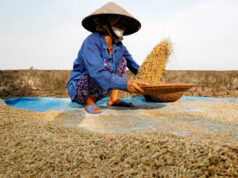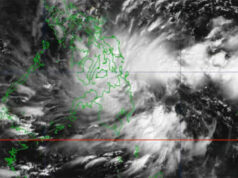Trade dep’t sees 10-15% hike in manufacturing FDIs in 2018
By Janina C. Lim
Reporter
FOREIGN direct investments (FDIs) in Philippine manufacturing will grow by a “reasonable” 10-15% in 2018 as investors remain bullish on the economy’s prospects, though this year’s pace will be a marked slowdown from 2017’s surge, the Department of Trade and Industry (DTI) said on Wednesday.
In a statement and a Viber message to reporters, Trade and Industry Secretary Ramon M. Lopez said that FDIs in manufacturing grew more than threefold to $1.15 billion last year from 2016’s $334.35 million, accounting for 3.5% of the $3.263-billion equity capital placements — which excludes reinvested earnings — in 2017 that in turn contributed to a fresh record-high $10.049 billion.
In 2016, manufacturing accounted for only 13% of $2.592-billion FDI equity placements.
Asked on the prospects for manufacturing FDIs this year, Mr. Lopez said he has a “bullish outlook” even if a high base in 2017 will result in slower growth.
“A 10-15% growth would be reasonable,” he said in a mobile phone message yesterday.
Sought for comment, Union Bank of the Philippines’ Chief Economist Ruben Carlo O. Asuncion said 2017’s surge was expected. “Major driver was the investment push from public and private sectors. Robust consumption demand also contributed to this manufacturing resurgence,” Mr. Asuncion said in a text message.
Angelo B. Taningco, economist at Security Bank Corp. cited Japan Tobacco, Inc.’s acquisition of homegrown Mighty Corp. as partly fueling 2017’s surge. “Robust domestic and external demand for locally made manufactured products may have attracted more FDIs into the manufacturing sector,” Mr. Taningco said in an e-mail message on Wednesday.
Manufacturing FDIs went to food; radio, television and communication equipment and apparatus; chemical and non-chemical products; fabricated metal products; as well as basic metal and non-metallic mineral products, DTI noted in its statement.
Mr. Asuncion also projects a slowdown, but still sees “continuing growth of the manufacturing sector moving forward,” saying: “Main drivers for 2018 is the increasing public investments particularly in infrastructure and the increasing domestic consumption demand due to structural economic reforms.”
“Investor confidence is real,” DTI’s statement quoted Mr. Lopez as saying further.
“The Philippines continues to be a magnet for investments, and this is due to the country’s improving business environment, sound macroeconomic policy, aggressive infrastructure buildup, much improved peace and order and political stability, favorable demographics, growing middle class and consumer base …”



